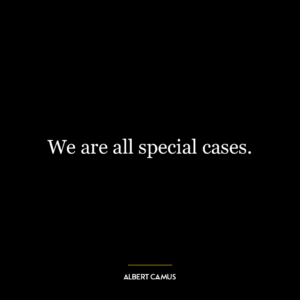There is no more futile punishment than futile and hopeless labor.
This quote speaks to the idea that labor, or work, that is futile and hopeless is the most severe form of punishment. It suggests that engaging in tasks that have no purpose, no end, or no value is a fruitless and demoralizing endeavor. It reflects the existentialist belief that life should have meaning and purpose, and that to be condemned to a life of purposeless activity is a severe form of existential punishment.
The concept of futile and hopeless labor can be seen as a metaphor for a life lived without purpose or meaning. When one’s efforts do not lead to any meaningful or satisfying outcome, it can lead to feelings of despair, frustration, and existential angst.
In today’s world, this quote can be applied in various contexts. In a work setting, for example, employees who feel that their work is meaningless or that their efforts are not recognized may experience feelings of futility and hopelessness. This can lead to decreased job satisfaction, lowered productivity, and increased rates of burnout.
In the realm of personal development, this quote underscores the importance of finding purpose and meaning in one’s life. It suggests that engaging in activities that are aligned with one’s values and passions, and that contribute to a larger goal or purpose, can lead to increased satisfaction and well-being. Conversely, living a life that is out of alignment with one’s values or passions, or that lacks a sense of purpose, can lead to feelings of futility and hopelessness.
This idea also highlights the importance of setting realistic and achievable goals. If one sets goals that are too high or unrealistic, it can lead to feelings of futility and hopelessness when these goals are not met. On the other hand, setting and working towards achievable goals can provide a sense of purpose and direction, and can contribute to feelings of satisfaction and fulfillment.
In conclusion, this quote serves as a reminder of the importance of finding purpose and meaning in one’s work and in one’s life. It suggests that a life lived without purpose or meaning is a form of existential punishment, and underscores the importance of aligning one’s activities with one’s values and passions.















